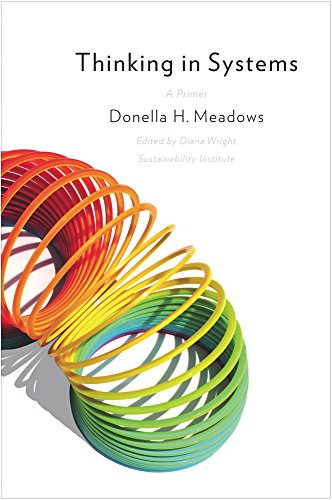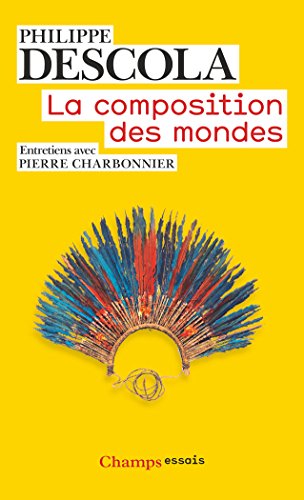Top 10 beyond nature and culture
If you looking for beyond nature and culture then you are right place. We are searching for the best beyond nature and culture on the market and analyze these products to provide you the best choice.
1. Thinking in Systems: A Primer
Feature
Ships from VermontDescription
In the years following her role as the lead author of the international bestseller, Limits to Growththe first book to show the consequences of unchecked growth on a finite planet Donella Meadows remained a pioneer of environmental and social analysis until her untimely death in 2001.
Thinking in Systems, is a concise and crucial book offering insight for problem solving on scales ranging from the personal to the global. Edited by the Sustainability Institutes Diana Wright, this essential primer brings systems thinking out of the realm of computers and equations and into the tangible world, showing readers how to develop the systems-thinking skills that thought leaders across the globe consider critical for 21st-century life.
Some of the biggest problems facing the worldwar, hunger, poverty, and environmental degradationare essentially system failures. They cannot be solved by fixing one piece in isolation from the others, because even seemingly minor details have enormous power to undermine the best efforts of too-narrow thinking.
While readers will learn the conceptual tools and methods of systems thinking, the heart of the book is grander than methodology. Donella Meadows was known as much for nurturing positive outcomes as she was for delving into the science behind global dilemmas. She reminds readers to pay attention to what is important, not just what is quantifiable, to stay humble, and to stay a learner.
In a world growing ever more complicated, crowded, and interdependent, Thinking in Systems helps readers avoid confusion and helplessness, the first step toward finding proactive and effective solutions.
2. Beyond Nature and Culture
Feature
University of Chicago PressDescription
3. The Ecology of Others (Paradigm)
Description
Since the end of the nineteenth century, the division between nature and culture has been fundamental to Western thought. In this groundbreaking work, renowned anthropologist Philippe Descola seeks to break down this divide, arguing for a departure from the anthropocentric model and its rigid dualistic conception of nature and culture as distinct phenomena. In its stead, Descola proposes a radical new worldview, in which beings and objects, human and nonhuman, are understood through the complex relationships that they possess with one another.
4. Beyond Human Nature: How Culture and Experience Shape the Human Mind
Description
A loud counterblast to the fashionable faith of our times: that human nature is driven by biology . . . urgent and persuasive.Sunday Times (London)
In this era of genome projects and brain scans, it is all too easy to overestimate the role of biology in human psychology. But in this passionate corrective to the idea that DNA is destiny, Jesse Prinz focuses on the most extraordinary aspect of human nature: that nurture can supplement and supplant nature, allowing our minds to be profoundly influenced by experience and culture. Drawing on cutting-edge research in neuroscience, psychology, and anthropology, Prinz shatters the myth of human uniformity and reveals how our differing cultures and life experiences make each of us unique. Along the way he shows that we cant blame mental illness or addiction on our genes, and that societal factors shape gender differences in cognitive ability and sexual behavior. A much-needed contribution to the nature-nurture debate, Beyond Human Nature shows us that it is only through the lens of nurture that the spectrum of human diversity becomes fully and brilliantly visible.5. Beyond the Juxtaposition of Nature and Culture: Lawrence Krader, Interdisciplinarity, and the Concept of the Human Being (History and Philosophy of Science)
Description
The essays contained in Beyond the Juxtaposition of Nature and Culture represent an attempt by scholars from Canada, Germany, and Mexico to come to grips with the innovative work of the American philosopher and anthropologist Lawrence Krader, who has proposed nothing less than a new theory of nature, according to which there are at least three different ordersthe material-biotic, the quantum and the humanwhich differ from one another according to their different configurations of space-time, and which cannot be reduced the one to the others. Each author takes up Kraders theory in relation to its impact on their own discipline: sociology, anthropology, the study of myth, the theory of labor and value, economics, linguistics, and aesthetics. The question of how nature and culture can be integrated within a theoretical framework which links them in difference and nexus and allows each their non-reductive space leads each of the contributors to move in their thinking beyond the old dualisms of materialism and idealism, fact and value, nature and culture.
6. Tahiti Beyond the Postcard: Power, Place, and Everyday Life (Culture, Place, and Nature)
Description
Winner of the 2013 ICAS Book Prize (Social Sciences)The Tahiti that most people imagine - white-sand beaches, turquoise lagoons, and beautiful women - is a product of 18th century European romanticism and persists today as the bedrock of Tahitis tourism industry. This postcard image, however, masks a different reality. The dreams and desires that the tourism industry promotes distract from the medical nightmares and environmental destruction caused by Frances 30-year nuclear testing program in French Polynesia. Tahitians see the burying of a bomb in their land as deeply offensive. For Tahitians, the land abounds with ancestral fertility, and genealogical identity, and is a source of physical and spiritual nourishment. These imagined and lived perspectives seem incompatible, yet are intricately intertwined in the political economy.
Tahiti Beyond the Postcard engages with questions about the subtle but ubiquitous ways in which power entangles itself in place-related ways. Miriam Kahn uses interpretive frameworks of both Tahitian and European scholars, drawing upon ethnographic details that include ancient chants, picture postcards, antinuclear protests, popular song lyrics, and the legacy of Paul Gauguins art, to provide fresh perspectives on colonialism, tourism, imagery, and the anthropology of place.
7. La composition des mondes (French Edition)
Description
Philippe Descola est aujourd'hui l'anthropologue franais le plus comment au monde, au point d'apparatre comme le successeur lgitime de Claude Lvi-Strauss. De ses enqutes auprs des Indiens jivaros de Haute-Amazonie son enseignement au Collge de France, il revient sur son parcours d'anthropologue - son exprience du terrain et les discussions qui ont anim l'anthropologie des annes 1970 et 1980-, et claire aussi la question environnementale et le droit des socits indignes.Dans cette synthse sous forme d'entretiens, il s'intresse tout particulirement nos faons d'habiter une plante remplie de "non-humains" - plantes, animaux ou esprits. Ce faisant, il propose l'une des critiques les plus inventives du modle occidental.
8. Genetic Nature/Culture: Anthropology and Science beyond the Two-Culture Divide
Description
Individual essays address issues raised by the science, politics, and history of race, evolution, and identity; genetically modified organisms and genetic diseases; gene work and ethics; and the boundary between humans and animals. The result is an entree to the complicated nexus of questions prompted by the power and importance of genetics and genetic thinking, and the dynamic connections linking culture, biology, nature, and technoscience. The volume offers critical perspectives on science and culture, with contributions that span disciplinary divisions and arguments grounded in both biological perspectives and cultural analysis. An invaluable resource and a provocative introduction to new research and thinking on the uses and study of genetics, Genetic Nature/Culture is a model of fruitful dialogue, presenting the quandaries faced by scholars on both sides of the two-cultures debate.
9. Beyond Beef: The Rise and Fall of the Cattle Culture (Plume)
Description
An analysis of the beef culture incorporates anthropology, history, sociology, economics, and ecology to demonstrate how "cattle culture" has changed our world. Reprint. 25,000 first printing. National ad/promo.10. Culture and Conservation: Beyond Anthropocentrism (Routledge Explorations in Environmental Studies)
Description
Today, there is growing interest in conservation and anthropologists have an important role to play in helping conservation succeed for the sake of humanity and for the sake of other species. Equally important, however, is the fact that we, as the species that causes extinctions, have a moral responsibility to those whose evolutionary unfolding and very future we threaten.
This volume is an examination of the relationship between conservation and the social sciences, particularly anthropology. It calls for increased collaboration between anthropologists, conservationists and environmental scientists, and advocates for a shift towards an environmentally focused perspective that embraces not only cultural values and human rights, but also the intrinsic value and rights to life of nonhuman species. This book demonstrates that cultural and biological diversity are intimately interlinked, and equally threatened by the industrialism that endangers the planet's life-giving processes. The consideration of ecological data, as well as an expansion of ethics that embraces more than one species, is essential to a well-rounded understanding of the connections between human behavior and environmental wellbeing.
This book gives students and researchers in anthropology, conservation, environmental ethics and across the social sciences an invaluable insight into how innovative and intensive new interdisciplinary approaches, questions, ethics and subject pools can close the gap between culture and conservation.













Recent Comments